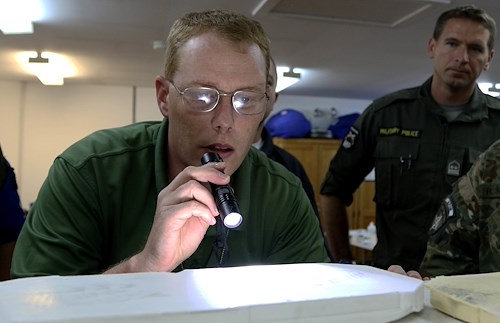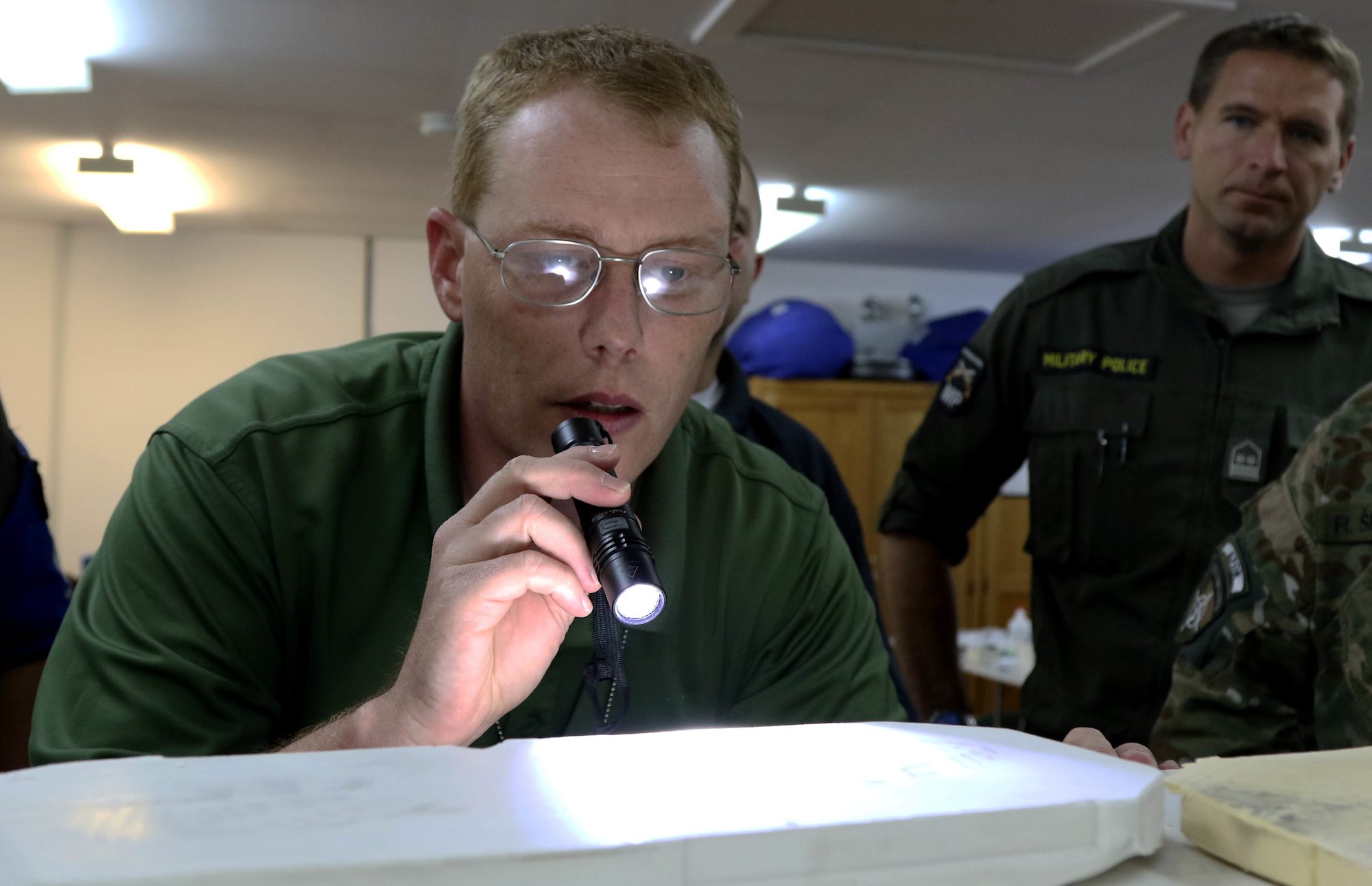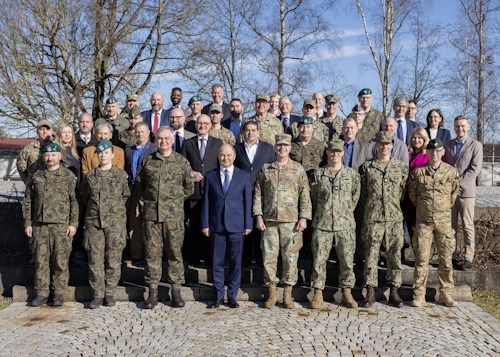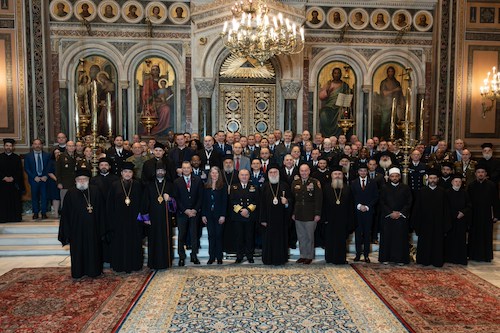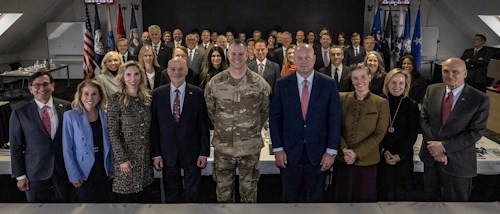Gallery contains 5 images
×
Photo 1 of 5
United States European Command Image
Staff Sgt. Christopher Officer, a criminal investigation special agent, shines a light on a foot impression inside a casting mold, during a Crime Scene Investigation course at Camp Bondsteel, Kosovo, July 13, 2016. (U.S. Army photo by: Staff Sgt. Thomas Duval, Multinational Battle Group-East public affairs)
Photo by: Staff Sgt. Thomas Duval
Photo 2 of 5
United States European Command Image
A criminal investigation special agent, from U.S. Army Europe, shows how to properly cast a foot impression to service members from NATO’s Kosovo Force during a Crime Scene Investigation course held on Camp Bondsteel, Kosovo, July 13, 2016. (U.S. Army photo by: Staff Sgt. Thomas Duval, Multinational Battle Group-East public affairs)
Photo by: Staff Sgt. Thomas Duval
Photo 3 of 5
United States European Command Image
Staff Sgt. Christopher Officer, a criminal investigation special agent, dusts for fingerprints during a crime scene forensic training course at Camp Bondsteel, Kosovo, July 12-13. (U.S. Army photo by: Staff Sgt. Thomas Duval, Multinational Battle Group-East public affairs)
Photo by: Staff Sgt. Thomas Duval
Photo 4 of 5
United States European Command Image
Service members from Austria, serving as international military police, examine a bottle for fingerprints during a Crime Scene Investigation course held on Camp Bondsteel, Kosovo, July 13, 2016. (U.S. Army photo by: Staff Sgt. Thomas Duval, Multinational Battle Group-East public affairs)
Photo by: Staff Sgt. Thomas Duval
Photo 5 of 5
United States European Command Image
(Left-Right) Sgt. Michael Andresen and Sgt. Charles McElrath, both military policemen assigned to Multinational Battle Group-East, analyze a foot impression during a Crime Scene Investigation course held on Camp Bondsteel, Kosovo, July 13, 2016. (U.S. Army photo by: Staff Sgt. Thomas Duval, Multinational Battle Group-East public affairs)
Photo by: Staff Sgt. Thomas Duval
CAMP BONDSTEEL, Kosovo— When international military police arrive on a crime scene in Kosovo, every miniscule detail could potentially make or break their case.
Preserving the crime scene and collecting the forensic evidence, whether it’s a fingerprint or a shoe impression, could be the difference in whether a criminal walks free or faces trial for their crime.
Regardless of how big or small the evidence is military policemen working with NATO’s Kosovo Force must know and understand how to properly collect, document, store, and ship each piece for later use.
Thanks to the help of a criminal investigation team, from U.S. Army Europe, service members deployed to Kosovo have a better understanding of how to accomplish this daunting mission.
Military policemen from Austria, Slovenia, Germany, Italy, and the U.S. came together on Camp Bondsteel for an advanced Crime Scene Investigation (CSI) course July 12-13.
The training focused on investigative techniques used to process and collect evidence ranging from small trace evidence, which includes DNA, fibers and hair, to larger evidence like fingerprints and electronic hard drives.
“The training is important because if there is a major crime the MPs must have an understanding of what we need, so that we can come in and help with the investigation,” said Staff Sgt. Christopher Officer, a criminal investigations special agent with the Criminal Investigation Division (CID). “Being able to build a relationship between us and foreign nations also allows us to get a different view of what training they received so if we ever have to meet at a crime scene on the battle field we all kind of know where each one of us is coming from.”
For U.S. military police, the class offered a unique opportunity to train on techniques often overlooked during their normal day-to-day operations.
“This class focused on the police side of our job, not so much the Army side,” said Sgt. Charles McElrath, a military policeman assigned to Multinational Battle Group-East. “Being an MP, it can be tough to get real hands-on training that is beneficial to police work because we work so many different jobs. This higher level of training, which was provided here, I can take with me and help teach other MPs from foreign militaries better investigation skills.”
Thanks to the two-day course, McElrath said he and his multinational counterparts are better equipped for meeting the demands of the Kosovo Force and are prepared to answer the call if it should arise.

